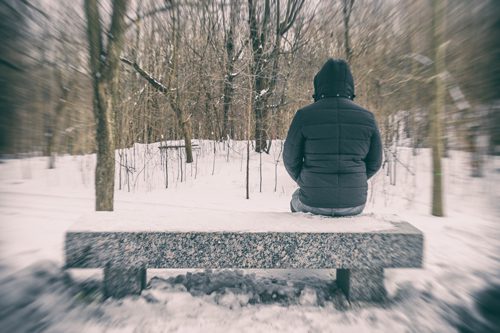
Let in the Light: Seasonal Affective Disorder and Substance Abuse
Last week I walked out of work at seven o’clock p.m. and my heart sank.
I had forgotten that the sun goes down earlier this time of year. I work in a building almost entirely without windows, and when I get out of work late, it means that I barely see the sun at all. As I walked out into a cold, dark, grey landscape I thought, “How am I ever going to get through this winter?” All I wanted to do was to curl up in a ball and hibernate till spring. I am one of many who live with Seasonal Affective Disorder.
What is Seasonal Affective Disorder (SAD)?
SAD is a depression that affects people during the winter months when the day is shorter. It estimated that four to eight percent of Americans are affected by SAD. However, the further from the equator, the more likely people are to experience symptoms.
SAD can affect many parts of life, causing any of the following:
- Instable mood
- Loss of appetite
- Insomnia, extreme sleepiness, low energy
- Questioning self-worth
- Not loving the activities you once loved
- Difficulty getting daily tasks done
- Low libido
- Aches and pains without reason
- Craving carbs, which often leads to weight gain
SAD can affect relationships, friendships, career, and school. It can feel as if it completely changes your personality. Some groups of people may be more susceptible to the changes in seasons such as women, younger people, and those who live with depression or bipolar disorder. There is also a less extreme form of SAD, which is estimated to affect up to twenty percent of the population.
What is the link between SAD and addiction?
Like other forms of depression, substances are often abused as a form of self-medication. A person who has been clean all spring and summer might find it extra difficult to say no to a temptation when the “winter blues” hit.
However, especially with depressants such as alcohol, substances can worsen SAD symptoms. If a person turns to alcohol to escape their seasonal depression, alcohol can make them feel more depressed since it is a depressant, and thus a vicious cycle is started. According to Comprehensive Psychiatry, “Seasonal changes in mood and behavior (seasonality) may be closely related to alcoholism. Some patients with alcoholism have a seasonal pattern to their alcohol misuse. They may be self-medicating an underlying seasonal affective disorder (SAD) with alcohol or manifesting a seasonal pattern to alcohol-induced depression.” And it’s true of other drugs besides alcohol as well.
How to ease SAD symptoms:
- Let in as much natural sunlight as you can. Even if it’s cold, try to get outside and walk in the sun at least once a day. Open your blinds and sit in the sunniest room in your home.
- Get moving. Even if it’s just for a short walk. Even if you don’t feel like it. As with all forms of depression, exercise can drastically improve your mood.
- Draw closer to friends, family, and your support network. In this case, go against your instincts. If you feel yourself pulling away from your loved ones, meet a friend for coffee or invite someone over for a movie. It doesn’t have to be a packed social event, but make sure you have someone around you when you’re feeling off during the winter months.
- Get lots of omega-3 fats. Eat more fish or take a recommended omega-3 supplement.
- Take Vitamin D supplements. If you can’t get enough time outside in the sunshine, vitamin D supplements are the next best thing.
- Consider light therapy. Sometimes called a “happy light,” a light therapy box mimics natural sunlight to help improve people’s moods. For details about finding a good light therapy box, look here.
- Consider seeing a therapist and/or asking about an antidepressant. There is absolutely no shame in taking the steps you need to take to get well. Sometimes SAD is so depleting that medication and therapy can make a huge difference.
Sometimes we just need to get through the winter. Sometimes we need to take whatever steps will help us get through winter—an antidepressant, taking the time to get outside, going easy on ourselves, etc. The goal is to be sober and healthy when spring comes again.
And remember, spring always comes again.
Unlike other forms of depression, SAD won’t last all year. It has an end date. Many parts of life are uncertain, but the coming of spring and the return of the sun is always certain. You just have to hold on to the hope that recovery and SAD will get easier one day.
Victory Addiction Recovery Center can help you work through addiction if you think you may have SAD and are self-medicating with substances. Victory’s holistic approach provides family counseling for those in the recovery center. Licensed staff support individuals and families of those struggling with addiction and can help you address the deep issues of addiction recovery. If you or someone you know is abusing substances, contact Victory Addiction Recovery Center and ask about how to get help.
